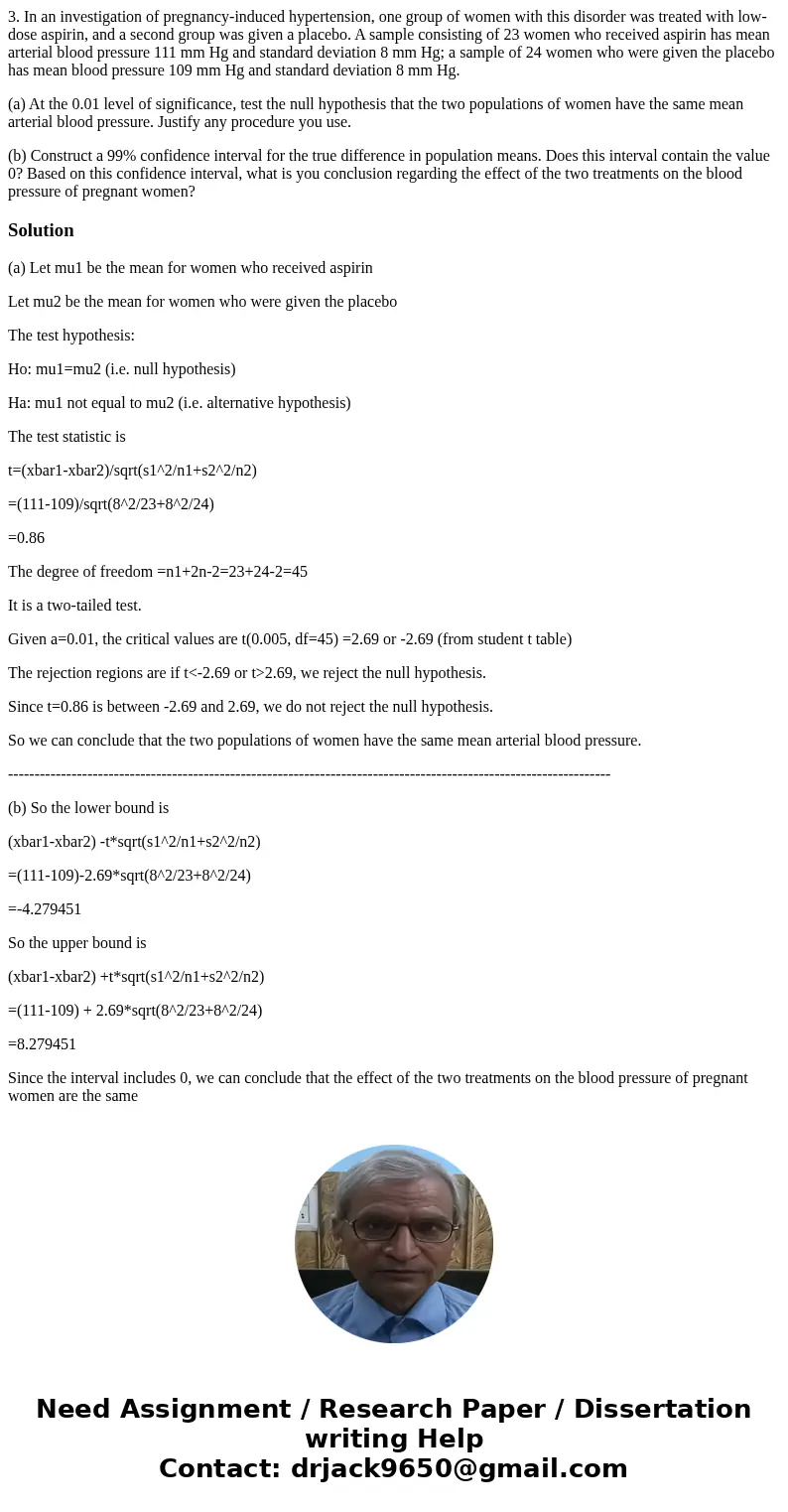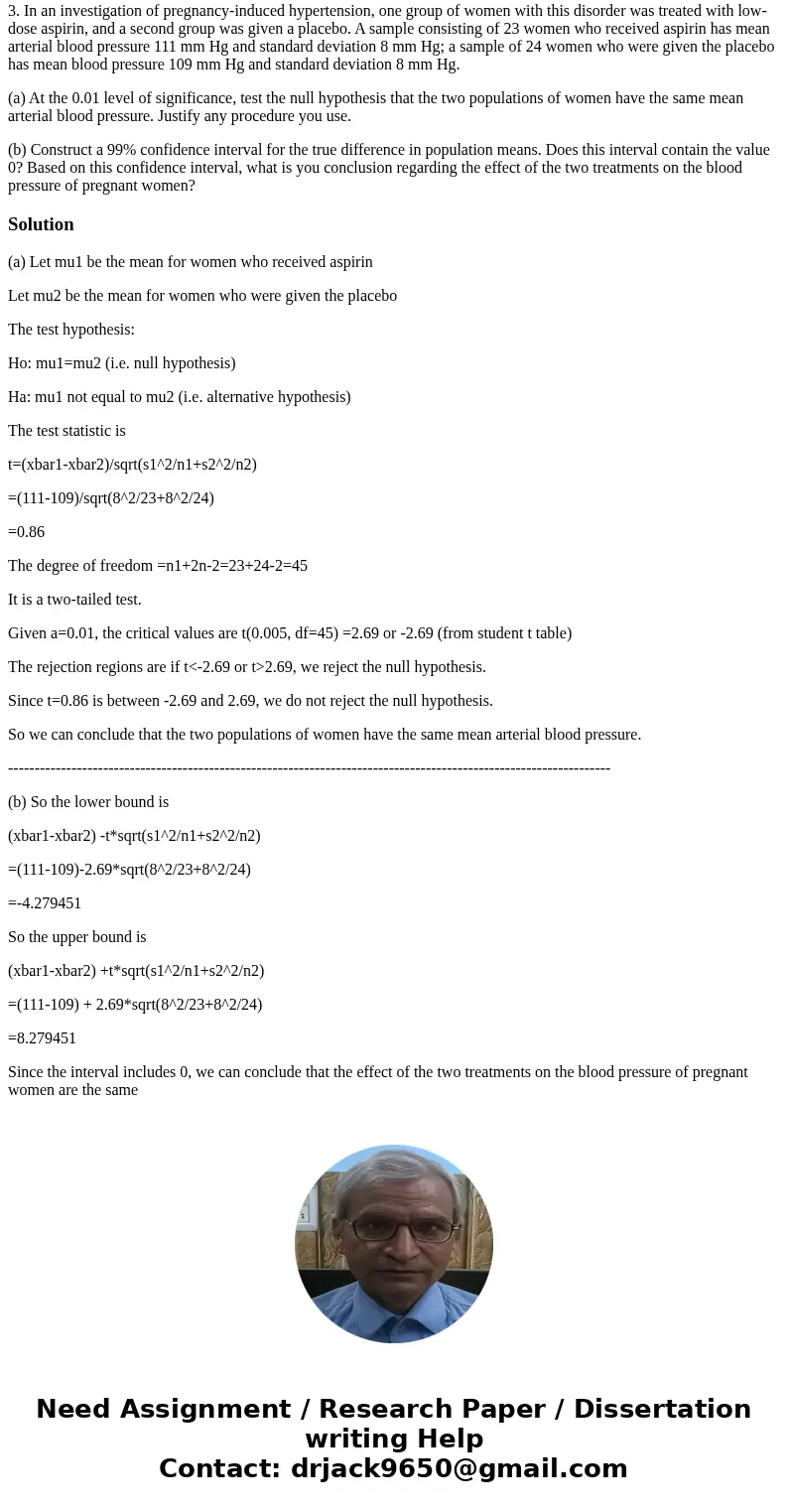3 In an investigation of pregnancyinduced hypertension one g
3. In an investigation of pregnancy-induced hypertension, one group of women with this disorder was treated with low-dose aspirin, and a second group was given a placebo. A sample consisting of 23 women who received aspirin has mean arterial blood pressure 111 mm Hg and standard deviation 8 mm Hg; a sample of 24 women who were given the placebo has mean blood pressure 109 mm Hg and standard deviation 8 mm Hg.
(a) At the 0.01 level of significance, test the null hypothesis that the two populations of women have the same mean arterial blood pressure. Justify any procedure you use.
(b) Construct a 99% confidence interval for the true difference in population means. Does this interval contain the value 0? Based on this confidence interval, what is you conclusion regarding the effect of the two treatments on the blood pressure of pregnant women?
Solution
(a) Let mu1 be the mean for women who received aspirin
Let mu2 be the mean for women who were given the placebo
The test hypothesis:
Ho: mu1=mu2 (i.e. null hypothesis)
Ha: mu1 not equal to mu2 (i.e. alternative hypothesis)
The test statistic is
t=(xbar1-xbar2)/sqrt(s1^2/n1+s2^2/n2)
=(111-109)/sqrt(8^2/23+8^2/24)
=0.86
The degree of freedom =n1+2n-2=23+24-2=45
It is a two-tailed test.
Given a=0.01, the critical values are t(0.005, df=45) =2.69 or -2.69 (from student t table)
The rejection regions are if t<-2.69 or t>2.69, we reject the null hypothesis.
Since t=0.86 is between -2.69 and 2.69, we do not reject the null hypothesis.
So we can conclude that the two populations of women have the same mean arterial blood pressure.
------------------------------------------------------------------------------------------------------------------
(b) So the lower bound is
(xbar1-xbar2) -t*sqrt(s1^2/n1+s2^2/n2)
=(111-109)-2.69*sqrt(8^2/23+8^2/24)
=-4.279451
So the upper bound is
(xbar1-xbar2) +t*sqrt(s1^2/n1+s2^2/n2)
=(111-109) + 2.69*sqrt(8^2/23+8^2/24)
=8.279451
Since the interval includes 0, we can conclude that the effect of the two treatments on the blood pressure of pregnant women are the same


 Homework Sourse
Homework Sourse